Phillip Hughes: No-one to blame for death, inquest reveals
- Published
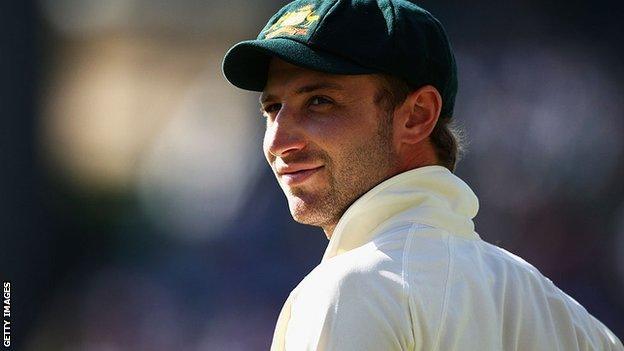
The inquest heard Hughes' death was "inevitable" from the moment he was struck by a cricket ball
Nobody was to blame for the death of Australian opener Phillip Hughes in 2014, says the coroner who led the inquest into his death.
Hughes died from a brain haemorrhage, two days after being hit on the neck while playing for South Australia in a first-class match in Sydney.
New South Wales coroner Michael Barnes did, however, make recommendations to ensure the sport was safer.
Cricket Australia said it would make the changes as soon as possible.
"We want to do everything possible to avoid this sort of thing happening again in the future," chief James Sutherland told reporters in Perth.
Mr Barnes said there had been no "malicious intent" from New South Wales' Sean Abbott, who bowled the fatal delivery at the Sydney Cricket Ground, and "no failure" to enforce the laws of the game in respect to the short-pitched deliveries.
"Of the 23 bouncers bowled that day, 20 were bowled to him," he said. "Phillip was comfortably dealing with short-pitch balls. I conclude they did not contribute to his death.
"Hughes was dealt a fatal ball with a high bounce. He could have ducked but such was his competitiveness he wanted to make runs from it."
The coroner added: "A minuscule misjudgement or a slight error of execution caused him to miss the ball which crashed into his neck with fatal consequences."
'Unsavoury practice of sledging'
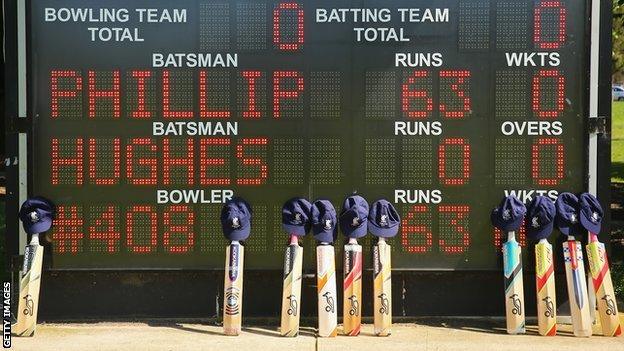
Cricket bats and caps belonging to the players were placed near the scoreboard which displayed a tribute to Phillip Hughes
During the five-day inquest, Hughes' fellow Australia internationals Brad Haddin, Doug Bollinger and David Warner, who were playing for New South Wales, denied there was any element of unsportsmanlike behaviour in the match.
Those sentiments were echoed by Tom Cooper, who was batting alongside Hughes at the time of the incident.
Questions had been raised over whether one bowler told Hughes: "I'm going to kill you."
Mr Barnes said while he could not be certain sledging - verbal abuse designed to unsettle a batsman - had taken place, it was "difficult to accept" it had not, but it would not have played any part in Hughes' death.
"Hopefully the focus on this unsavoury aspect of the incident may cause those who claim to love the game to reflect whether the practice of sledging is worthy of its participants," he added.
During the inquest, the Hughes family walked out of court because they believed unsportsmanlike play had contributed to the tragedy.
"The family's grief at losing their much-loved son and brother was exacerbated by their belief that unfair play had contributed to his death," Mr Barnes said.
The family were not at the court to hear the findings of the inquest.
Mr Sutherland said he did not believe sledging was an issue for cricket, but was mostly good natured and in the spirit of the game.
"If it has become a problem, then I'd say the umpires are not doing their job," he said.
Equipment 'would not have saved Hughes'
New cricket helmet design explained
Mr Barnes also found that changes to safety equipment introduced since Hughes' death would not have saved the player.
He also found that the emergency response to the incident was flawed and it took six minutes to call an ambulance.
He said on-field umpires and the match referee, who is not based on the field of play but in the stands, should be trained to recognise and act on a medical emergency.
A review commissioned by Cricket Australia ruled protective helmets should be compulsory for batsmen facing fast and medium-paced bowling.
But that review also said helmets meeting the newest safety standards would not have saved Hughes' life.
The Professional Cricketers' Association (PCA) released a statement after the inquest and said it would continue to work to "improve the standard of helmets and other protective equipment".
The statement read: "Player safety is of paramount importance and we will continue to work closely with the England and Wales Cricket Board, the Federation of International Cricketers' Associations and the International Cricket Council to minimise the risk of serious injury to players."
Hampshire-based manufacturer Masuri has produced a prototype helmet, which features extra protection at the rear.
After Hughes' death, the company began investigating a possible redesign and have introduced a "stemguard", a device made of foam and a rubber-like compound that clips onto the back of a helmet.
- Attribution
- Published10 October 2016
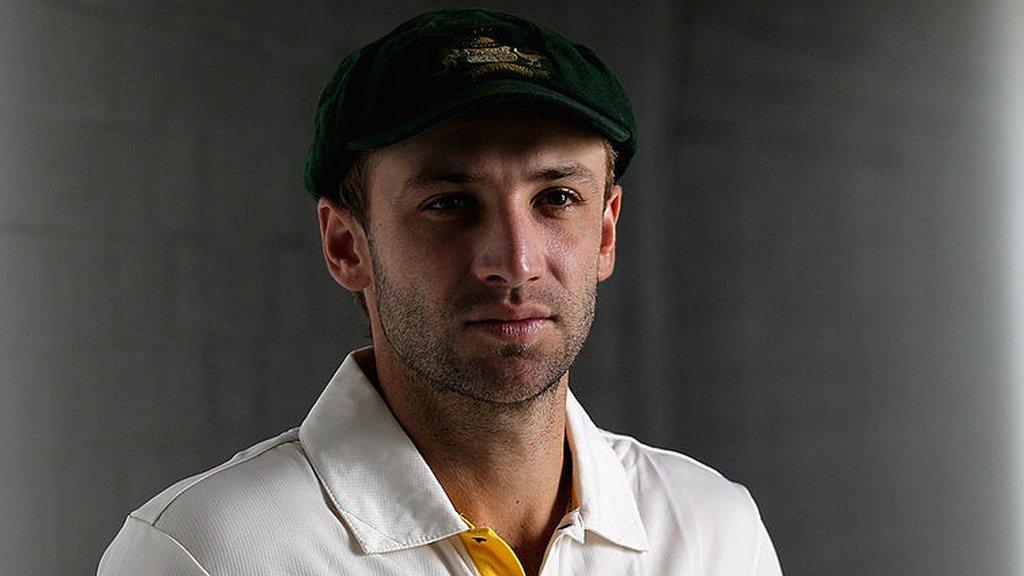
- Published27 November 2014
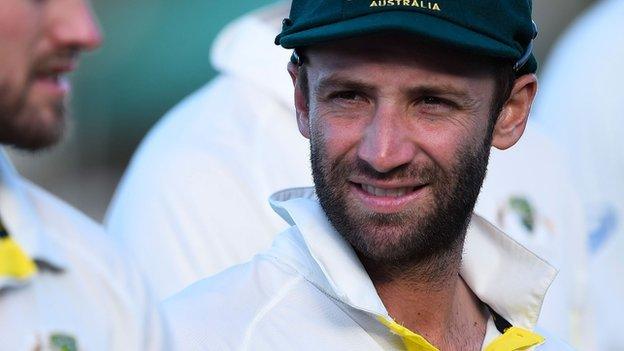
- Attribution
- Published27 November 2014
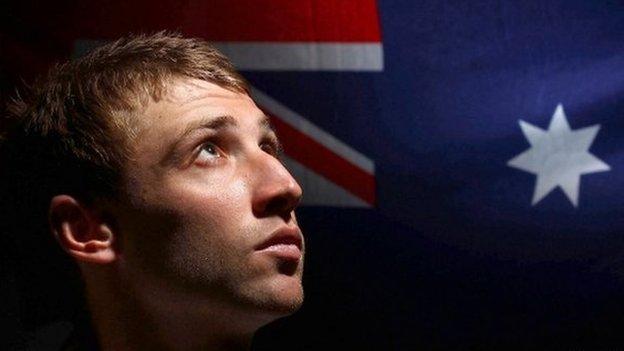
- Attribution
- Published11 May 2016
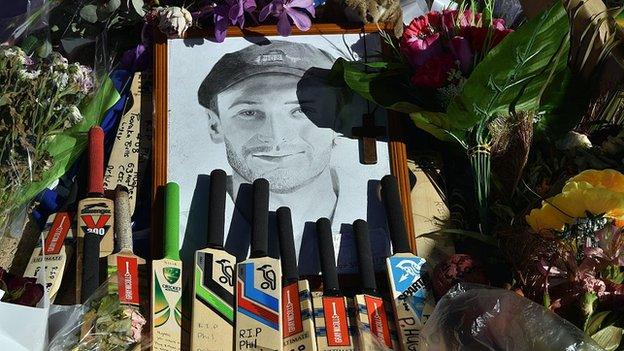
- Attribution
- Published28 November 2014
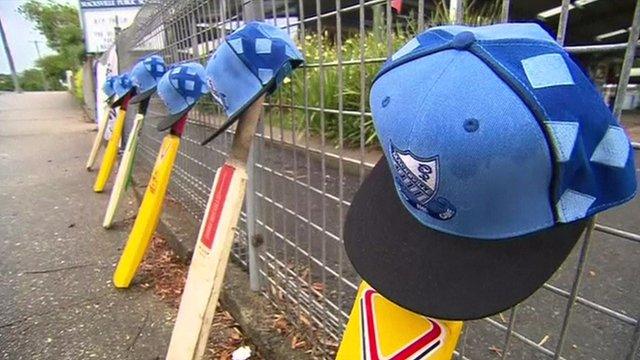
- Published15 May 2018
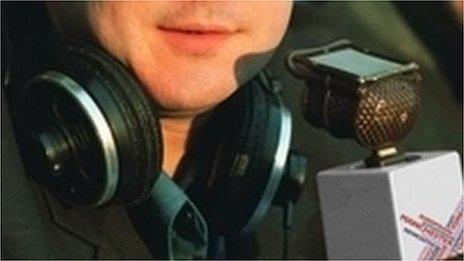
- Published8 August 2017

- Published13 May 2016
